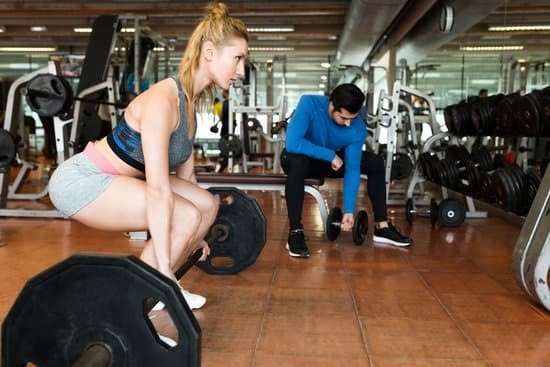A healthy lifestyle encompasses more than just occasional workouts or strict dieting. In this essay on exercise and nutrition for fitness, we delve into the fundamental pillars of overall fitness, highlighting the crucial roles that physical activity and proper nutritional intake play in achieving optimal health. Recognizing the interconnected nature of exercise and nutrition is essential for individuals striving to enhance their well-being and vitality through sustainable lifestyle changes.
Exercise not only improves physical strength but also enhances mental clarity and emotional well-being. From cardiovascular activities like running to strength training exercises such as weightlifting, various workout routines offer unique benefits that contribute to overall fitness. Moreover, understanding how nutrition fuels these workouts is equally vital in maximizing their effectiveness. A balanced diet rich in macronutrients and micronutrients is essential for supporting physical activity levels and promoting muscle recovery.
The synergy between exercise and nutrition forms the cornerstone of a successful fitness regimen. By aligning dietary choices with specific workout goals, individuals can optimize their performance, accelerate progress, and prevent injuries.
Tailoring meal plans to complement different types of exercises ensures that the body receives adequate nourishment to sustain energy levels during workouts while aiding in post-exercise recovery. As we explore the intricate relationship between exercise and nutrition throughout this essay, it becomes clear that both elements are indispensable components of a holistic approach to fitness.
The Benefits of Regular Exercise
Exercise is a crucial component of achieving and maintaining overall fitness. Regular physical activity provides a myriad of benefits for both the body and the mind. From improving cardiovascular health to boosting mood and reducing stress, exercise plays a vital role in enhancing one’s quality of life. Engaging in various types of exercises, such as cardio, strength training, flexibility exercises, and high-intensity interval training (HIIT), can target different aspects of fitness and contribute to overall well-being.
In terms of physical benefits, regular exercise helps in weight management by burning calories and building muscle mass. It also strengthens bones, joints, and muscles, reducing the risk of injuries as well as chronic conditions like osteoporosis. Moreover; exercise boosts energy levels, improves sleep quality, and enhances immune function. On the mental front, physical activity releases endorphins that promote feelings of happiness and relaxation while alleviating symptoms of anxiety and depression.
When it comes to choosing an exercise routine for fitness goals, individuals have a plethora of options to explore. Aerobic exercises like running, swimming, or cycling are excellent for improving cardiovascular endurance. Strength training with weights or resistance bands helps build muscle strength and definition. Flexibility exercises such as yoga or Pilates enhance joint mobility and reduce muscle tension; whereas HIIT combines intense bursts of activity with short rest periods for effective calorie burning and cardiovascular conditioning.
| Physical Benefits | Mental Benefits |
|---|---|
| Weight management | Promotes feelings of happiness |
| Strengthens bones and muscles | Alleviates symptoms of anxiety |
| Boosts energy levels | Improves sleep quality |
The Role of Nutrition in Fitness
Nutrition plays a crucial role in achieving and maintaining overall fitness. A balanced diet is essential for providing the necessary nutrients to fuel physical activity, promote muscle growth, and support recovery. Macronutrients such as carbohydrates, proteins, and fats are important sources of energy that help sustain workouts and aid in muscle repair. Additionally, micronutrients like vitamins and minerals play key roles in regulating metabolism and supporting various physiological functions essential for optimal performance during exercise.
Consuming the right combination of macronutrients is vital for maximizing workout results. Carbohydrates serve as the primary source of energy during exercise, especially high-intensity activities. Proteins are essential for muscle repair and growth, making them crucial for individuals looking to build or maintain lean muscle mass.
Healthy fats play a role in hormone production and help the body absorb fat-soluble vitamins. A well-rounded diet that includes a variety of nutrient-dense foods can provide the necessary macronutrients to support fitness goals.
In addition to macronutrients, micronutrients are equally important for overall health and fitness. Vitamins and minerals act as coenzymes in metabolic reactions that regulate energy production, oxygen transport, electrolyte balance, and muscle contraction.
For example, calcium is necessary for muscle function; iron is essential for oxygen transport; and vitamin D supports bone health and immune function. Including a diverse range of fruits, vegetables, whole grains, lean proteins, and healthy fats in one’s diet can help ensure an adequate intake of these essential micronutrients.
| Nutrient | Role |
|---|---|
| Carbohydrates | Primary source of energy during exercise |
| Proteins | Muscle repair and growth |
| Fats | Hormone production and nutrient absorption |
The Connection Between Exercise and Nutrition
Exercise and nutrition are two essential components that go hand in hand when it comes to achieving optimal fitness levels. It is crucial to understand the connection between these two factors in order to reap the full benefits of a healthy lifestyle. Exercise not only helps in improving physical strength and endurance but also plays a significant role in boosting mental health by reducing stress and anxiety levels.
Similarly, proper nutrition provides the necessary fuel for the body to perform at its best during physical activities. In this section, we will delve deeper into how exercise and nutrition complement each other in enhancing overall fitness.
To maximize the benefits of exercise, it is important to fuel your body with the right nutrients before and after workouts. Here are some key points to consider:
- Pre-workout nutrition: Consuming a balanced meal or snack rich in carbohydrates and proteins before exercising can help improve performance and prevent muscle fatigue.
- Post-workout nutrition: Replenishing your body with protein-rich foods like lean meats, eggs, or legumes after a workout can aid in muscle recovery and growth.
- Hydration: Staying hydrated before, during, and after exercise is essential for maintaining proper bodily functions and optimizing performance.
In addition to focusing on macronutrients such as carbohydrates, proteins, and fats, it is equally important to pay attention to micronutrients like vitamins and minerals. These nutrients play a crucial role in supporting overall health and well-being while engaging in physical activities. By understanding how exercise and nutrition work together synergistically, individuals can achieve their fitness goals more effectively and sustainably over time.
Common Misconceptions About Exercise and Nutrition
One common misconception about exercise and nutrition is that you need to follow a strict diet or engage in intense workouts to see results. However, the reality is that sustainable fitness goals can be achieved through moderation and consistency. It’s essential to understand that small changes in your lifestyle, such as incorporating more fruits and vegetables into your diet or engaging in regular physical activity, can have a significant impact on your overall health and fitness levels.
To debunk the myth that cutting out entire food groups is necessary for weight loss or muscle gain, here are some evidence-based explanations:
- Carbohydrates are often demonized in popular diets, but they are actually a crucial source of energy for physical activity. Opting for complex carbohydrates like whole grains, legumes, and fruits can provide sustainable energy levels without causing spikes in blood sugar.
- Another misconception is that all fats are bad for you. In reality, healthy fats like those found in avocado, nuts, and fatty fish are essential for brain function, hormone production, and overall health. Avoiding trans fats and excessive saturated fats while incorporating healthy unsaturated fats into your diet can support your fitness goals.
- Protein is often associated only with bodybuilders or athletes looking to build muscle mass. However, protein plays a vital role in repairing tissues, maintaining a strong immune system, and supporting various metabolic functions. Including lean sources of protein like poultry, fish, tofu, or legumes in your meals can help you feel fuller longer and promote muscle recovery after workouts.
By understanding the importance of balance and variety in both exercise routines and dietary choices, individuals can dispel these misconceptions and adopt a more sustainable approach to achieving their fitness goals. Remember that consistency over time is key to long-term success in improving overall health through exercise and nutrition.
Tips for Incorporating Exercise and Nutrition Into Daily Routine
Healthy Eating Habits
Incorporating exercise and nutrition into daily routines is essential for maintaining overall fitness and well-being. When it comes to nutrition, focusing on healthy eating habits is key. This includes consuming a well-balanced diet rich in fruits, vegetables, lean proteins, whole grains, and healthy fats.
Avoiding processed foods high in sugar and unhealthy fats can positively impact energy levels and support physical activity. Additionally, staying hydrated by drinking an adequate amount of water throughout the day is crucial for optimal performance during exercise.
Time-Efficient Workout Routines
For busy individuals looking to include exercise in their daily routine, time-efficient workout routines can be a game-changer. High-intensity interval training (HIIT) sessions are a great option for those short on time but still wanting to reap the benefits of exercise.
These workouts involve alternating between intense bursts of activity and short periods of rest or lower intensity exercises. HIIT workouts can be done in as little as 20-30 minutes and are effective for burning calories, improving cardiovascular fitness, and building strength.
Meal Prep Ideas
Meal prepping is another valuable strategy for incorporating exercise and nutrition into daily life. By preparing meals in advance, individuals can ensure they have healthy options readily available when time is limited or when cravings strike. This not only helps with portion control but also reduces the temptation to opt for less nutritious fast food or convenience items.
Batch cooking staples like grilled chicken, roasted veggies, quinoa, and overnight oats can simplify meal planning and make healthy eating more manageable amidst a hectic schedule. Remember that balance is key – aim for nourishing meals that fuel your body appropriately for the activities you have planned each day.
Importance of Goal Setting in Fitness
Setting fitness goals is a fundamental aspect of any successful exercise and nutrition plan. By establishing clear objectives, individuals can track their progress, stay motivated, and maintain consistency in their fitness journey. Whether the goal is to lose weight, build muscle, improve endurance, or enhance overall health, setting specific and achievable targets is crucial for long-term success.
Significance of Setting Realistic Goals
Setting realistic fitness goals ensures that individuals are not setting themselves up for failure. Unrealistic expectations can lead to frustration and demotivation if they are not met. By establishing goals that are attainable within a certain timeframe, individuals can experience a sense of accomplishment as they reach each milestone along the way. Realistic goals also allow for adjustments based on progress and obstacles encountered during the process.
Motivation Through Goal Setting
Goal setting serves as a powerful motivator in maintaining a consistent exercise and nutrition regimen. When individuals have clear targets in mind, they are more likely to stay focused and dedicated to their fitness routines.
Achieving smaller goals along the path to a larger objective can boost confidence and reinforce healthy habits. Additionally, tracking progress visually or through journaling can provide a tangible reminder of how far an individual has come and inspire them to keep pushing forward towards their ultimate fitness goals.
Importance of Long-Term Sustainability
By incorporating goal setting into a fitness plan, individuals are encouraged to prioritize both short-term achievements and long-term sustainability. Establishing healthy habits through proper nutrition and regular exercise becomes more manageable when connected to specific goals that align with personal values and aspirations. Through goal setting, individuals can create lasting lifestyle changes that promote overall health, well-being, and physical fitness in the years to come.
Conclusion
In conclusion, the essay on exercise and nutrition for fitness has shed light on the vital role that physical activity and healthy eating play in achieving overall well-being. Regular exercise not only improves cardiovascular health, muscle strength, and flexibility but also boosts mental health by reducing stress and anxiety. From aerobic exercises like running and swimming to strength training activities such as weightlifting and yoga, there are numerous options to suit different preferences and fitness goals.
Furthermore, the significance of nutrition in supporting fitness endeavors cannot be overstated. A balanced diet rich in macronutrients like protein, carbohydrates, and fats is essential for fueling the body during workouts and aiding in muscle recovery.
Additionally, micronutrients such as vitamins and minerals play a crucial role in various bodily functions that contribute to overall fitness levels. By understanding how exercise and nutrition complement each other, individuals can optimize their performance, whether they are aiming to lose weight, build muscle, or simply improve their overall health.
As readers navigate through common misconceptions surrounding exercise and nutrition, it becomes evident that evidence-based information is key to making informed decisions about one’s health. By dispelling myths about fad diets or extreme workout regimens, individuals can adopt sustainable practices that promote long-term well-being.
With practical tips on incorporating healthy habits into daily routines and setting realistic fitness goals, this essay serves as a valuable resource for those looking to prioritize their health journey. Ultimately, by making conscious choices to prioritize exercise and nutrition for long-term benefits, individuals can empower themselves to lead healthier, happier lives.
Frequently Asked Questions
What Is the Role of Nutrition in Health and Fitness Essay?
Nutrition plays a crucial role in health and fitness as it provides the necessary nutrients for the body to function optimally. A balanced diet ensures that individuals have enough energy, vitamins, minerals, and essential nutrients to support their physical activities and overall well-being.
What Is the Importance of Physical Fitness and Nutrition?
Physical fitness and nutrition are both important components of a healthy lifestyle. Regular physical activity helps improve cardiovascular health, builds strength, and increases endurance. Alongside this, proper nutrition fuels the body for workouts, helps in muscle recovery, and supports overall health by reducing the risk of chronic diseases.
What Is Nutrition for Fitness Health and Exercise?
Nutrition for fitness, health, and exercise focuses on providing the body with the right balance of macronutrients (carbohydrates, proteins, fats) and micronutrients (vitamins, minerals) to support physical activity. Proper nutrition before, during, and after exercise can enhance performance, aid in recovery, prevent injuries, and promote long-term health benefits.

Passionate about providing useful information to anyone with an interest in the field of Personal Training, I strive to pass on to our readers quality information and to answer any questions about Personal Trainers, the work they do and how to become one.





